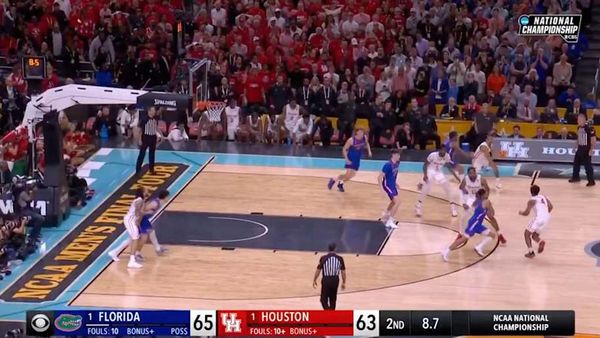
Earlier this year, the 1975, Britain’s most divisive arena-dwelling band, caused a minor ripple of controversy while announcing their fifth album. The problem wasn’t the very-online frontman Matty Healy’s shenanigans on Twitter – after quitting the app in 2020, he has since returned without a blue tick, but with a bio that reads “deleted once I’m verified” – or the fact they had ditched the self-produced route of their previous work in favour of pop’s go-to producer, Jack Antonoff. The problem was the length of the record itself. News articles were cobbled together showing tweets from fans bemoaning the fact that Being Funny in a Foreign Language’s svelte 11-track, 43-minute run time is about half that of 2020’s sprawling Notes on a Conditional Form. “It’s so short nooooo” ran one tweet.

It’s shocking because, until now, the 1975 have revelled in pure excess. From their album titles (see 2016’s word count-defying I Like It When You Sleep, for You Are So Beautiful Yet So Unaware of It) to Healy’s convoluted and contradictory lyrics and paragraph-long interview quotes, everything that surrounds the band feels purposefully OTT. But excess is often commensurate with a lack of focus. Keen to reflect modern-day listening habits, the 1975’s recent output has rarely stuck to one genre – Notes on a Conditional Form careened between punk, house, garage, electronic noodling, likely the distant sound of a kitchen sink being mined for chords – while Healy’s ability to communicate the complexities of millennial life has meant his rapid-fire lyrics often arrived in inverted commas, lacquered in so much irony they existed only as catch-all slogans.
While the technology-shy, primarily guitar-based Funny in a Foreign Language doesn’t exactly represent 33-year-old Healy mellowing out, it does highlight a shift in purpose. In a recent interview Healy confessed that after years of trying to capture everything, everywhere, all at once, here he was happy to scale it down: halting, as he put it, his search for the band’s magnum opus in favour of crafting a small-scale Polaroid. This pinhole focus underpins lead single Part of the Band, which eschews festival-headliner bombast in favour of rustic minimalism. But, as with a Polaroid, details slowly make themselves known the longer you pay attention. The track’s campfire singalong, reminiscent of early Bon Iver, masks swirls of sonic detritus; snatches of studio chatter rise and fall, as do bubbles of electronics and burps of brass, while the momentum constantly splutters like the battered car on the album’s artwork. Lyrically, Healy crams in a typically layered assortment of high-wire neurosis and sharp self-assessment: “Am I ironically woke? / The butt of my joke? / Or am I just some post-coke, average, skinny bloke / Calling his ego imagination?”
Masculinity, toxic and fragile, is explored throughout the album, usually via the blue glow of a phone screen. In Part of the Band, Healy paints a picture of a caricatured snowflake “full of soy milk” and “so sweet [he] won’t offend anybody”, while Looking for Somebody (to Love) explores the psyche of a mass shooter, touching on ideas around “incels” and lovelessness. “Oh they ran you should have seen how they ran when I was looking for somebody to love,” he sings over galloping, Springsteen-esque soft-rock, chirpy backing vocals and blares of 80s sax. “You should have seen it man, I was all ‘Bang! Bang! Bang! Bang!’” There are also numerous references to masturbation and ejaculation, which is either a wry comment on the fallacy of the potency of the penis in 2022, or an easy way to get a cheap laugh. Or both.
Thankfully, it’s not all about painstakingly peeling the lyrical onion. I’m in Love With You is the band at their most joyously straightforward, Healy repeating the title with an increasing light-headedness. There’s a brilliant moment in the bridge where Healy, starting to overthink things, is admonished via a playful “Don’t fuck it, you muppet!” Happiness, meanwhile, recalls the sleek, pastel-hued pop-rock of I Like it When You Sleep … with its earworm chorus and thinly veiled desperation (“Show me your love, why don’t you?”), adding to the band’s arsenal of festival anthems.
The album ends with two lovingly earnest ballads. About You, a delicate duet with Carly Holt, wife of the band’s guitarist Adam Hann, finds Healy trying desperately to remember a fading relationship over cascading guitars and increasingly vaporous vocals, while the country-hewn When We Are Together leans into the precise songwriting of pop’s best storyteller, Taylor Swift. Its prettily plucked shuffle is only disturbed by Healy’s habit of reminding you of his celebrity, and of the wider culture war he often seems keen to insert himself into. “It was poorly handled, the day we both got cancelled,” he sings softly, as your eyes roll skywards, “because I’m a racist and you’re some kind of slag.”
This wouldn’t be a 1975 album if it didn’t feature Healy tripping himself up. Thankfully, five albums in, a lot of the obstacles that aided his descent have been cleared away. Streamlined, focused on heart and not just head, and loaded with big, unironic pop moments – the intro to the major key Oh Caroline is pure Backstreet Boys – this is their first album in too long to play out like a pleasure and not a chore.







